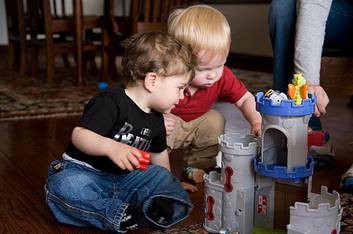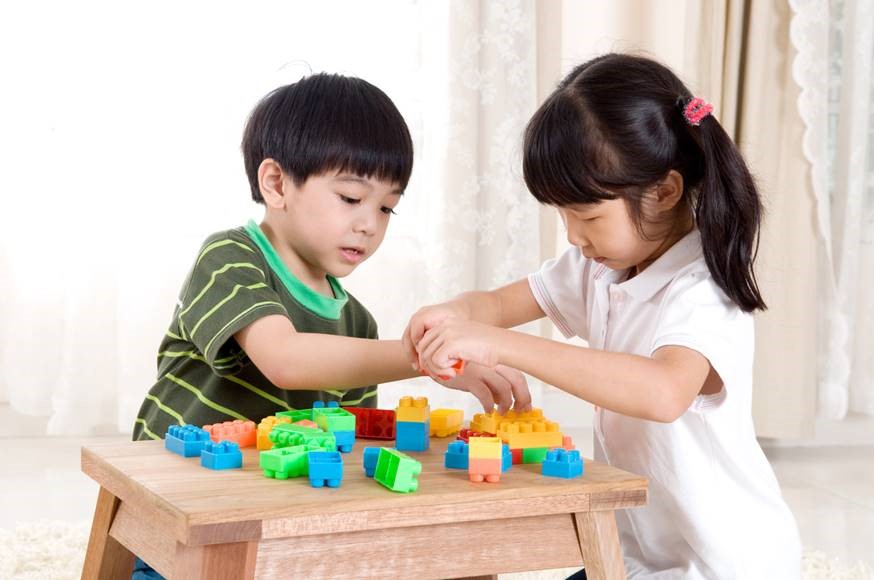
Our new blog series will focus on healthy social-emotional development. In this series, we will help you understand what it is, provide some examples of social-emotional development and share why it is important to your child’s growth and development.
According to Zero to Three, social-emotional
development  refers to your child’s ability to:
refers to your child’s ability to:
- Experience, regulate, and express his or her emotions.
- Form close and secure interpersonal relationships
- Explore the environment and learn
Ask yourself the following questions: does your child have the ability to understand the feelings of others? Can they control their own emotions? Can they build relationships with adults and get along with other children?
Social-emotional development refers to a wide range of skills used in every day social interactions. Young children develop these skills and abilities in small steps. It takes time to learn to make friends, display anger in a healthy way, or to wait patiently. Children don’t instinctively know how to respond to someone who’s been hurt, resolve conflicts peacefully, or to follow rules. We have to teach and show them!
For some children, these skills come naturally and with others we have to be more intentional about building them. Either way, children look to their parents and other influential adults to model how to respond to certain situations. You are their first example of positive, healthy social-emotional interactions.
 Relationships are Key
Relationships are Key
“Initially, your baby’s entire world consists of you and your spouse and any other caregivers who are with them on a daily basis.” -Greenspan, 1999
Strong, positive relationships help children develop trust, empathy, compassion, and learn the difference between right and wrong. These skills begin developing at birth and continue through each stage of development and everyday interactions with you. For example, when you meet your baby’s needs and show them empathy, they begin to understand and value themselves. As a result, children begin to learn the importance of respecting and valuing the feelings of others, and develop positive relationships. There is a chain reaction that begins with every early interaction with caregivers.
What Can You Do?
Healthy social-emotional development has important benefits to children, families, and the community as a whole. Unhealthy social-emotional development comes with many challenges. Some common challenges that can stem from difficulty in social-emotional development include poor self-esteem, difficulty in school, isolation, difficulty building and maintaining relationships, and low confidence. Starting to work on these skills early is important, so here are some steps you can take to help your child’s social-emotional development:
- Lead by example and model positive behaviors

- Be affectionate toward your child- hug them, make eye contact, use a kind tone
- Be considerate of feelings, wants and needs
- Express interest in your child’s activities
- Respect and listen to their viewpoints and consider their perspective
- Express pride in accomplishments
- Provide encouragement and support during times of stress
- Help them name their emotions and teach them how to handle them
Additional Resources:
- Check out this video to learn the importance of connecting with babies from an early age
- Use this website for resources to begin building your child’s social-emotional skills
- Is your child’s social development on track? Take a look at this article to learn more.

